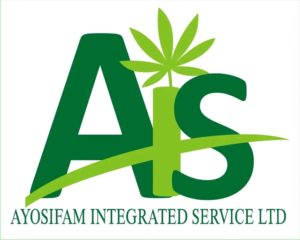The World Bank’s recent forecast paints a concerning picture for Nigeria, projecting a 3.6 percentage point increase in poverty by 2027. This grim outlook underscores the urgent need for effective poverty reduction strategies. Agriculture, a significant sector in Nigeria, holds immense potential to uplift vulnerable populations, particularly through the empowerment of smallholder farmers engaged in the cultivation of staple crops like cassava and potatoes.
The Economic Power of Cassava and Potato
Cassava and potatoes are not merely food crops in Nigeria; they are vital sources of income and hold significant economic value:
Cassava: Nigeria stands as the world’s largest producer of cassava. This versatile crop is drought-resistant and can thrive in less fertile soils, making it a reliable food source and a key to food security, especially in rural areas. Beyond consumption as “garri” and “fufu,” cassava is processed into high-value products like starch, flour (a substitute for wheat flour), ethanol, and animal feed, opening up diverse income streams for farmers and processors. The cassava value chain, encompassing farming, processing, and marketing, provides livelihoods for millions of Nigerians and contributes substantially to the nation’s GDP. Furthermore, there’s a growing international demand for processed cassava products, presenting export opportunities.
Potato (Irish Potato): In Nigeria, particularly in regions like Plateau State, potato farming is a profitable venture with a high yield per unit area compared to other root and tuber crops. Its relatively short maturity period allows for multiple cropping cycles within a year, enhancing income potential. Potatoes are a significant source of carbohydrates, fiber, vitamins, and minerals, contributing to both food security and nutritional well-being. The demand for potatoes is high in both local and international markets, offering opportunities for increased earnings for farmers. Investment in the potato value chain can also lead to employment generation and wealth creation in rural communities.
Empowering Smallholder Farmers: A Pathway to Poverty Reduction
Smallholder farmers constitute a significant portion of Nigeria’s agricultural workforce. Enhancing their capacity to cultivate cassava and potatoes efficiently and connect them to profitable markets can be a powerful tool in reducing poverty:
Increased Productivity: Providing smallholder farmers access to improved, disease-resistant varieties of cassava and potato stems/seeds, modern farming techniques, appropriate fertilizers, and pest management strategies can significantly boost their yields. Agricultural extension services are crucial in disseminating this knowledge and providing necessary support.
Access to Finance: Limited access to credit is a major constraint for smallholder farmers. Facilitating access to microfinance and other credit facilities will enable them to invest in better inputs, equipment, and processing technologies, leading to higher productivity and income.
Improved Infrastructure and Market Linkages: Poor Road networks and a lack of storage facilities often result in post-harvest losses and limit farmers’ access to markets. Investing in rural infrastructure, including transportation and storage, and establishing efficient market linkages will ensure that farmers can sell their produce at fair prices, increasing their profitability.
Value Addition: Encouraging and supporting smallholder farmers to engage in processing of cassava and potatoes into products like cassava flour, starch, or potato chips can significantly increase the value of their produce and their income. This can be achieved through training, provision of processing equipment, and facilitating access to processing facilities.
Cooperative Farming: Promoting cooperative farming models can help smallholder farmers pool resources, share knowledge, access better inputs and markets collectively, and reduce individual risks.
Targeted Government Support: Implementing supportive agricultural policies, providing subsidies for essential inputs, and creating a stable market environment are crucial for empowering smallholder farmers and ensuring the sustainability of their efforts.
Addressing Challenges for Smallholder Farmers
To effectively leverage the potential of cassava and potato farming for poverty reduction, it’s essential to address the challenges faced by smallholder farmers in Nigeria:
- Inadequate access to modern farming inputs and technologies.
- Lack of irrigation facilities, making them heavily reliant on rain-fed agriculture.
- The impact of climate change, leading to unpredictable weather patterns and crop failures.
- High cost of labor and sometimes its scarcity during peak seasons.
- Limited access to agricultural information and extension services.
- Price fluctuations and exploitation by middlemen.
- Inadequate storage and processing facilities leading to post-harvest losses.
- Security challenges in some regions, hindering farming activities.
Conclusion
While the World Bank’s forecast presents a challenge, it also underscores the urgency for targeted interventions. By strategically investing in and empowering smallholder farmers in the cultivation and value addition of staple crops like cassava and potatoes, Nigeria can make significant strides in mitigating the projected increase in poverty by 2027. Addressing the challenges faced by these farmers, coupled with supportive policies and infrastructure development, will unlock the immense potential of the agricultural sector to drive economic growth, ensure food security, and improve the livelihoods of millions of Nigerians.




